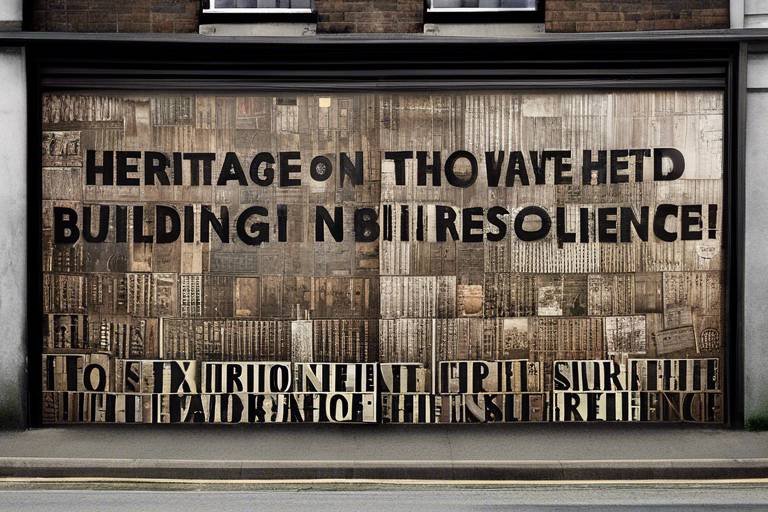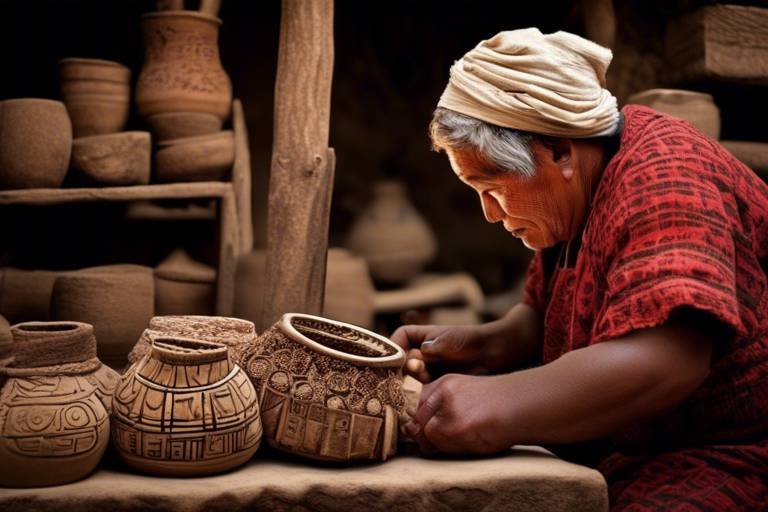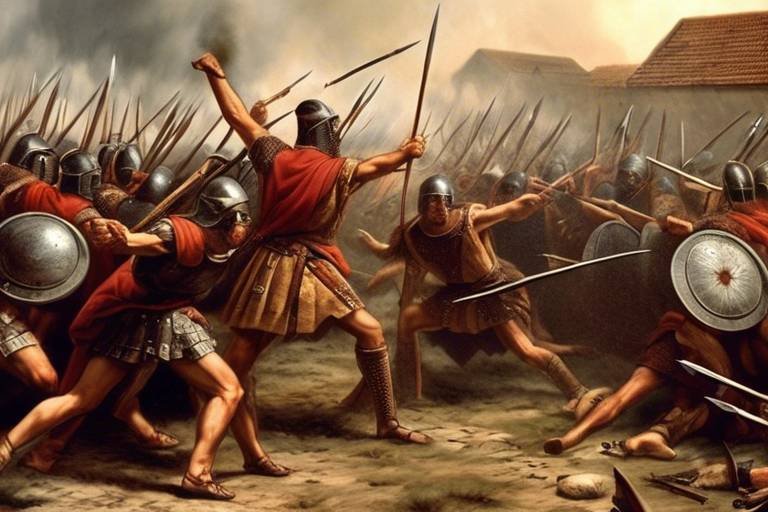The Influence of Ancient Roman Religion on Modern Society
Ancient Roman religion holds a profound influence on modern society, shaping various aspects of our lives that we may not even realize. From the foundations of Roman beliefs to the legacy in language and literature, the impact of Roman religion is far-reaching and enduring.
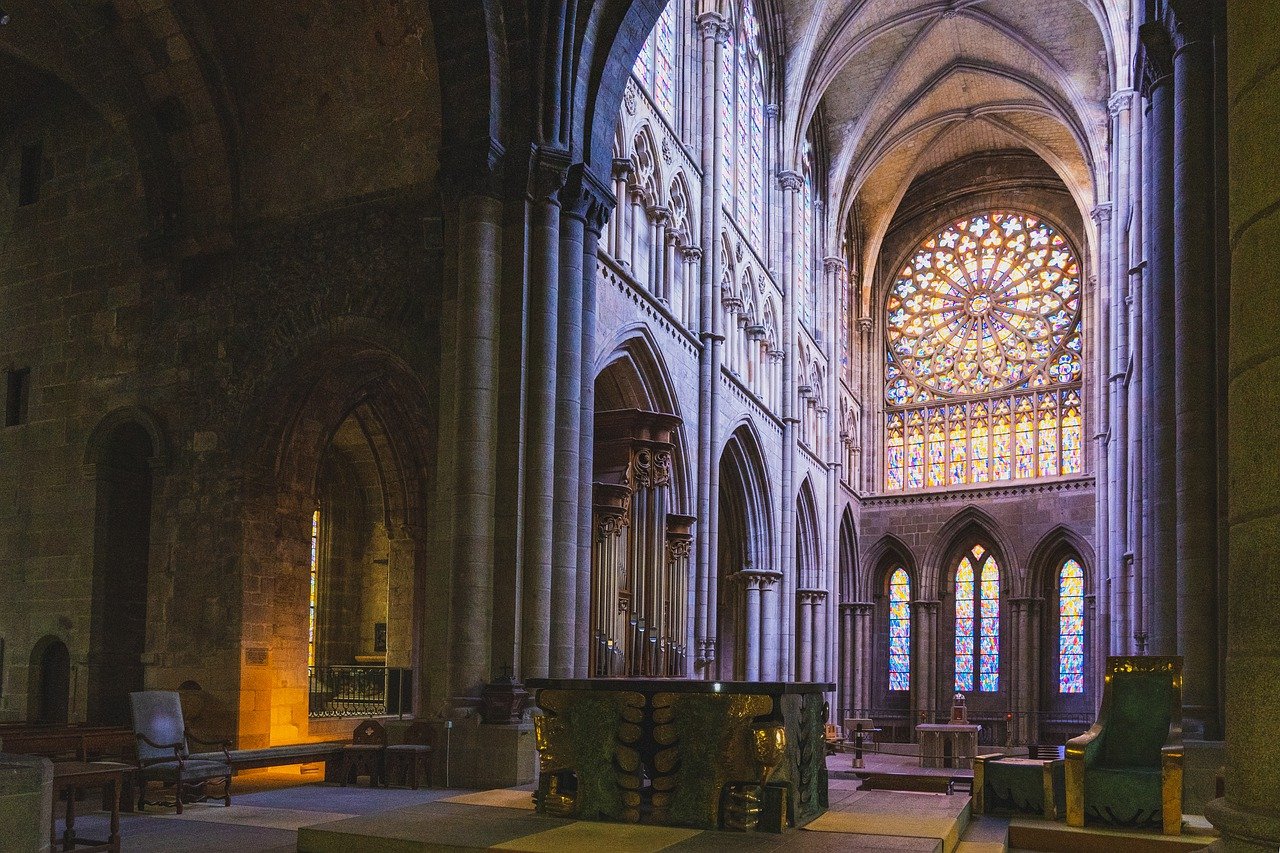
Foundations of Roman Religion
The foundations of Roman religion are deeply rooted in the beliefs and practices of ancient Rome. The Romans held a polytheistic worldview, believing in a pantheon of gods and goddesses who governed various aspects of life. These deities were worshipped through rituals, prayers, and sacrifices, with each having specific roles and attributes.
The Roman religion was intertwined with daily life, influencing everything from family affairs to public events. The concept of numina, or divine spirits, permeated Roman society, with individuals seeking divine favor and protection in their endeavors. The belief in augury, the interpretation of signs and omens from the gods, also played a significant role in decision-making.
Moreover, the Roman religious calendar was filled with festivals and ceremonies dedicated to honoring the gods and goddesses. These rituals served not only as acts of worship but also as social gatherings that reinforced community bonds and cultural identity. The reverence for ancestral spirits and household gods further underscored the importance of religious practices in Roman life.
As Rome expanded its influence across the ancient world, its religious beliefs also spread, blending with local traditions and cults. This syncretism led to the incorporation of new deities and practices into the Roman pantheon, creating a diverse religious tapestry that reflected the multicultural nature of the empire.
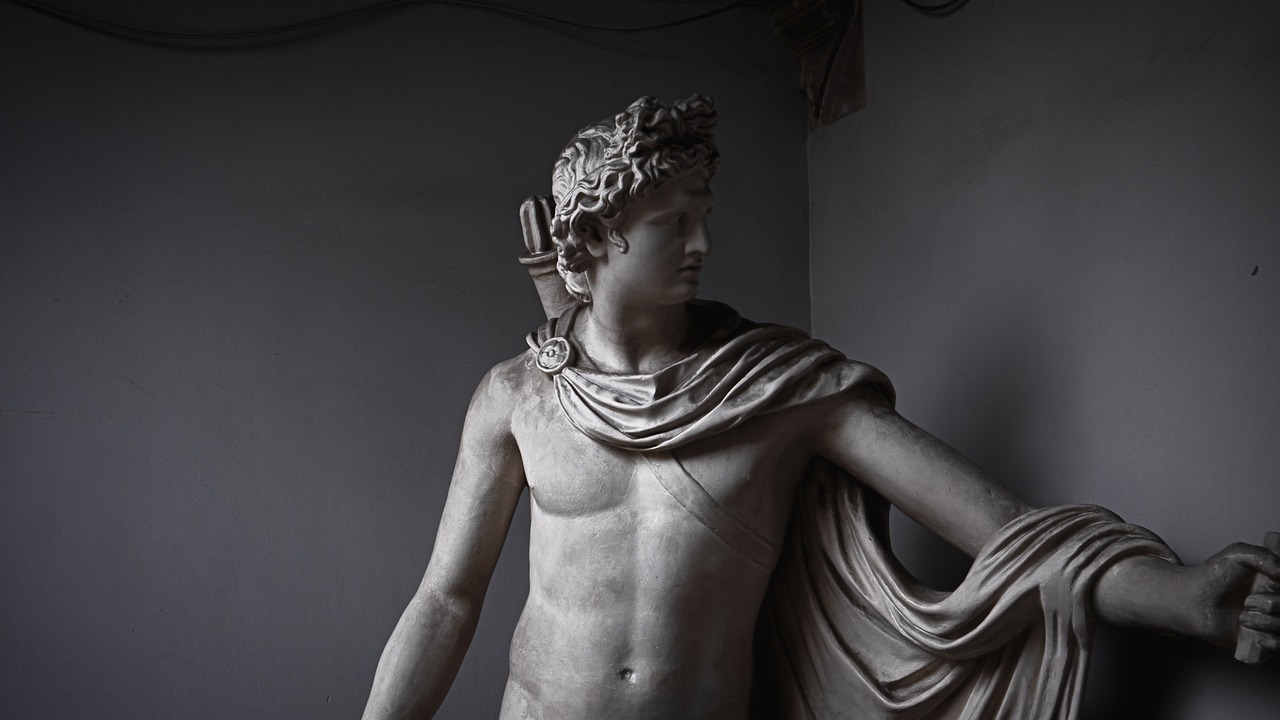
Role of Roman Gods and Goddesses
Exploring the origins and beliefs of ancient Roman religion and its impact on modern religious practices and traditions, we delve into the fascinating world of the Roman gods and goddesses. These divine figures played a crucial role in shaping the daily lives and cultural practices of the ancient Romans, leaving a lasting legacy that continues to influence contemporary society.
The Roman pantheon was populated with a diverse array of gods and goddesses, each presiding over different aspects of life. From Jupiter, the king of the gods, to Venus, the goddess of love, these divine beings were believed to intervene in the affairs of mortals and influence the course of events. The Romans worshipped these deities fervently, offering prayers and sacrifices to seek their favor and protection.
Furthermore, the roles of Roman gods and goddesses extended beyond mere religious devotion. They were intricately woven into various aspects of daily life, influencing everything from agriculture and fertility to war and craftsmanship. For example, Ceres, the goddess of agriculture, was revered by farmers seeking bountiful harvests, while Mars, the god of war, was invoked by soldiers before battle.
Moreover, the influence of Roman deities transcended religious boundaries and permeated all levels of society. Temples dedicated to specific gods and goddesses dotted the Roman landscape, serving as centers of worship and communal gatherings. The belief in these divine beings fostered a sense of unity and shared cultural identity among the Roman people.
As we reflect on the role of Roman gods and goddesses in ancient society, we uncover a rich tapestry of beliefs and practices that continue to resonate in modern culture. The legacy of these divine figures can be seen in art, literature, and even in the language we use today, reminding us of the enduring influence of ancient Roman religion on the world we inhabit.
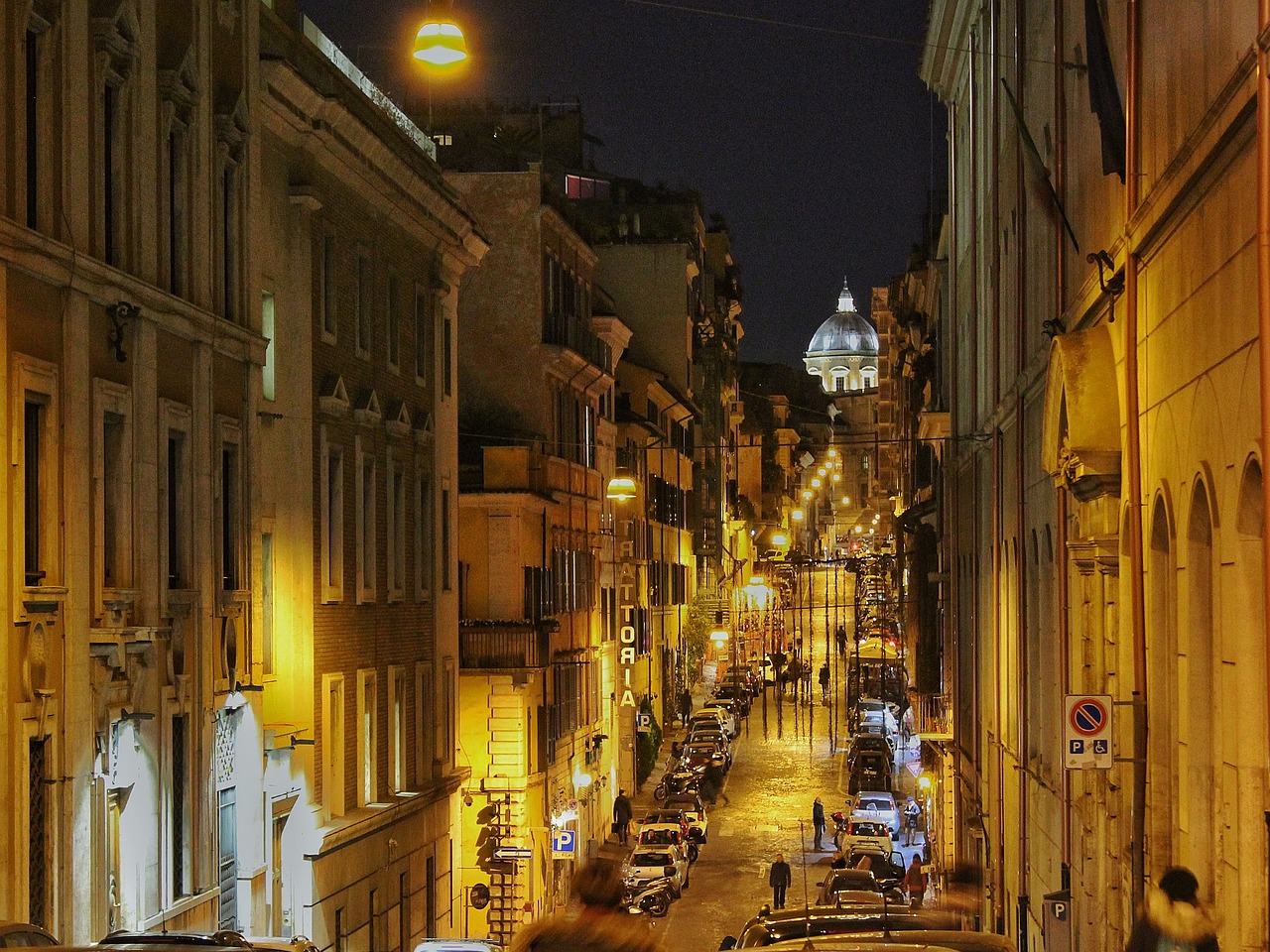
Rituals and Festivals
Exploring the origins and beliefs of ancient Roman religion and its impact on modern religious practices and traditions, we delve into the rich tapestry of history that continues to shape our world today.
Within the realm of ancient Roman religion, rituals and festivals played a vital role in connecting individuals to their spiritual beliefs and the divine. These sacred practices were not merely ceremonies but profound expressions of devotion and cultural identity. The Romans meticulously observed various rituals to honor their gods and goddesses, seeking blessings and protection for their communities and endeavors.
One of the most significant Roman festivals was the Saturnalia, a time of revelry and merrymaking in honor of the god Saturn. During this festival, social norms were temporarily overturned, and people engaged in feasting, gift-giving, and general merriment. The Lupercalia festival, dedicated to the god Lupercus, involved purification rituals and fertility rites, symbolizing the renewal of life and the coming of spring.
Moreover, the Vestalia celebrated Vesta, the goddess of the hearth, with rituals focused on domestic harmony and the protection of the home. These rituals not only fostered a sense of community but also reinforced the importance of familial ties and spiritual interconnectedness.
Parallel to these ancient practices, modern society still echoes the essence of these rituals and festivals in various forms. Holidays like Christmas, Easter, and Thanksgiving bear traces of Roman traditions, blending ancient customs with contemporary beliefs. The spirit of celebration, gratitude, and renewal that permeated Roman festivals continues to resonate in our cultural celebrations today.
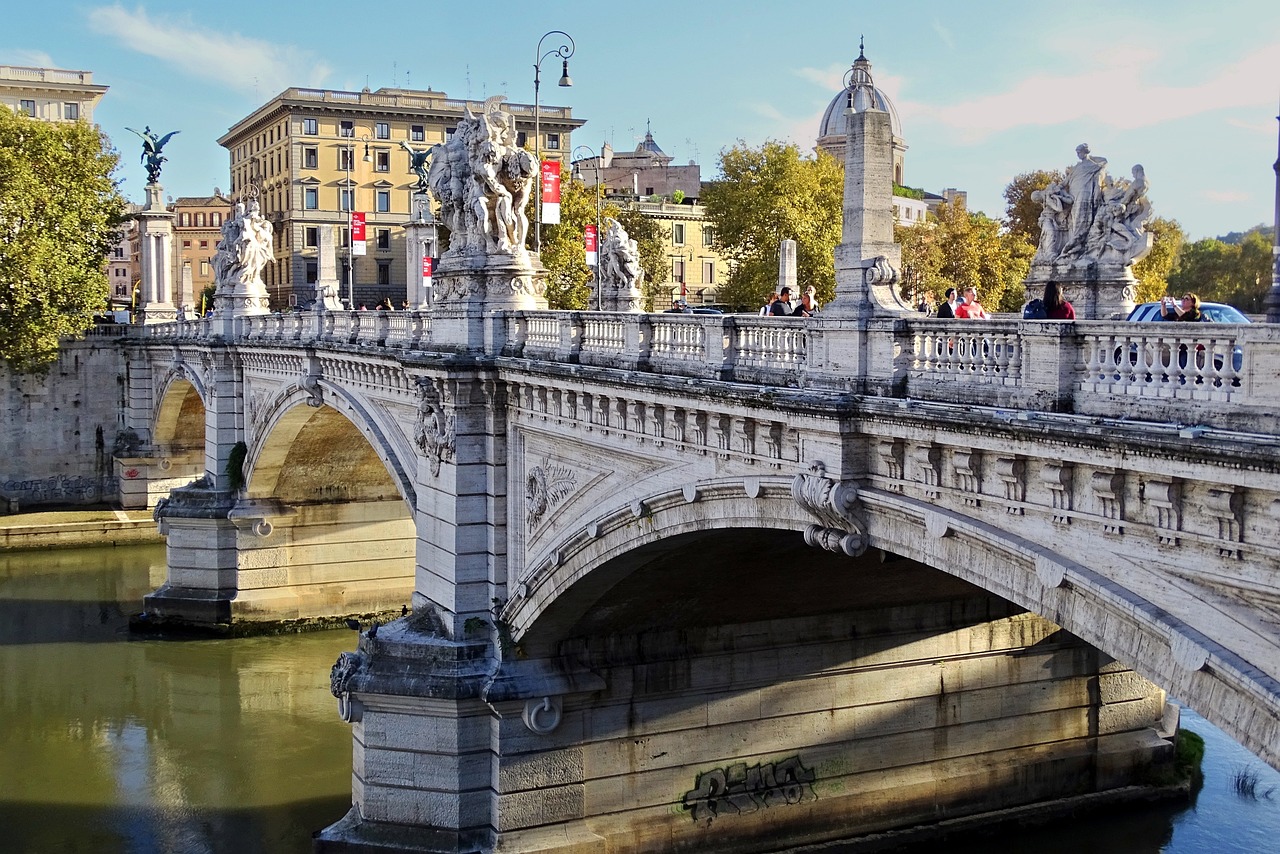
Political and Social Influence
When delving into the of ancient Roman religion, one cannot overlook the profound impact it had on shaping governance structures, societal norms, and ethical values that continue to resonate in contemporary society. The Romans believed that their gods played a crucial role in the affairs of the state, influencing decisions made by rulers and lawmakers.
Religious practices were intricately woven into the fabric of Roman politics, with rituals and ceremonies performed to appease the gods and seek their favor for the prosperity and well-being of the empire. The concept of pax deorum, or the peace of the gods, was central to Roman religious beliefs, emphasizing the importance of maintaining harmony between the divine and mortal realms.
Moreover, Roman religion served as a unifying force that bound together diverse communities under a shared set of beliefs and values. The public display of piety and adherence to religious customs helped reinforce social cohesion and identity, fostering a sense of belonging among the Roman populace.
On a broader scale, the ethical principles espoused by Roman religion, such as justice, honesty, and loyalty, permeated various aspects of Roman society, influencing moral conduct and legal systems. Concepts like virtus (virtue) and pudicitia (chastity) were upheld as ideals to aspire to, shaping individual behavior and societal expectations.
Furthermore, the close association between religion and politics in ancient Rome gave rise to the notion of imperium, the authority vested in rulers by divine sanction. Emperors were often deified after their death, blurring the lines between the secular and the sacred and reinforcing the divine right of kings.
As Roman civilization expanded its reach across the Mediterranean and beyond, the influence of Roman religious beliefs spread far and wide, leaving an indelible mark on the cultures and belief systems of the conquered territories. The syncretism of Roman religion with local deities and practices gave rise to hybrid religious traditions that endured for centuries.
In conclusion, the political and social influence of ancient Roman religion was profound and enduring, shaping the course of history and leaving a lasting legacy that continues to reverberate in modern society. By understanding the intricate interplay between religion, politics, and social dynamics in ancient Rome, we gain valuable insights into the complexities of human civilization and the enduring impact of belief systems on the fabric of society.
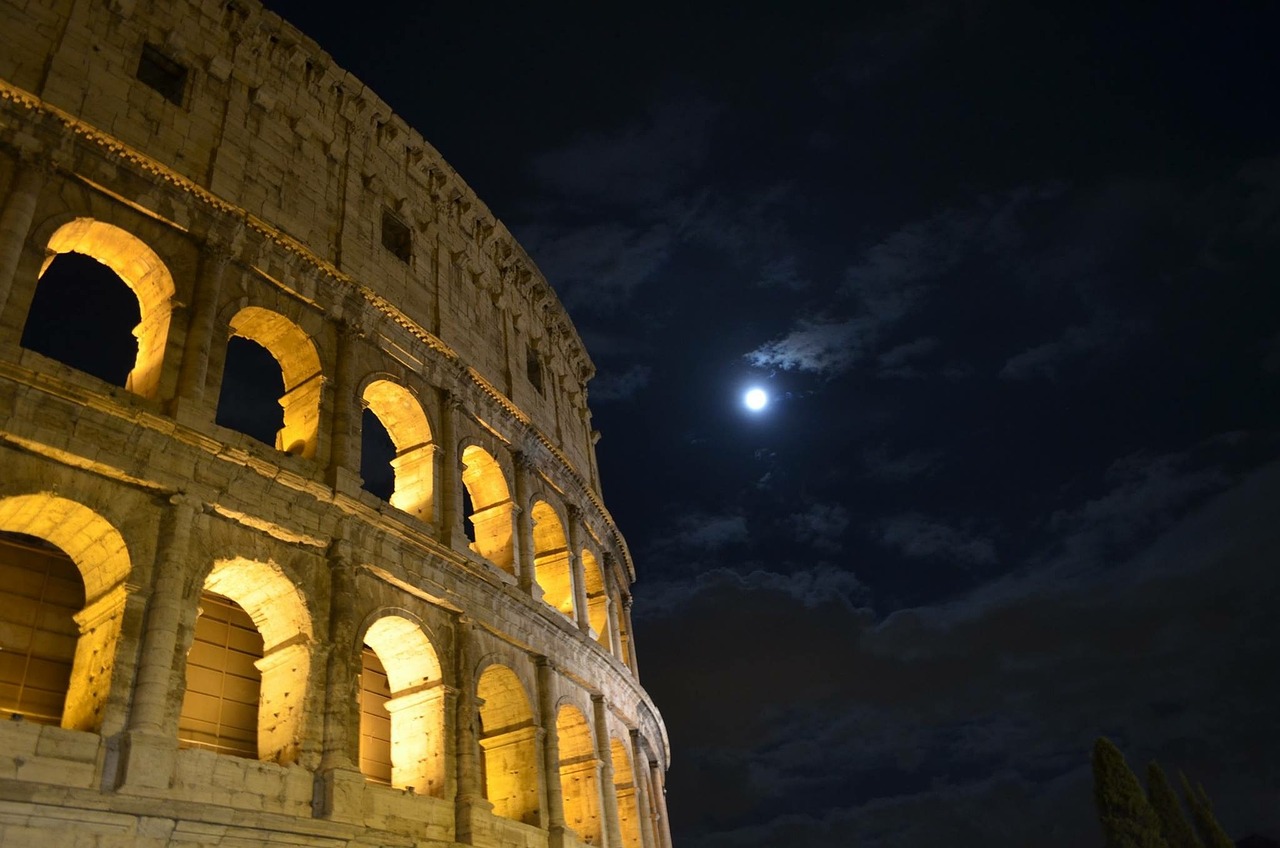
Art and Architecture
Art and architecture played a pivotal role in the manifestation of ancient Roman religious beliefs and practices. The Romans infused their deities and mythological narratives into various artistic forms, leaving behind a rich legacy that continues to inspire modern aesthetics and architectural designs. From intricate sculptures depicting gods and goddesses to grand temples dedicated to divine worship, Roman art and architecture reflected the deep reverence and devotion towards their religious pantheon.
The grandeur of Roman architecture, characterized by monumental structures such as the Pantheon and the Colosseum, showcased the power and glory associated with Roman deities. These architectural marvels not only served as places of worship but also as symbols of imperial authority and cultural identity. The intricate detailing and innovative engineering techniques employed in Roman buildings influenced architectural styles across the centuries, leaving an indelible mark on the evolution of architectural design.
Moreover, Roman artistry extended beyond monumental structures to include intricate mosaics, frescoes, and decorative arts that adorned both religious and secular spaces. The skillful craftsmanship and attention to detail in Roman art reflected a deep-seated belief in the divine presence permeating all aspects of life. The integration of religious motifs and symbols in everyday objects and structures reinforced the spiritual connection between the mortal realm and the divine realm.
Furthermore, the fusion of Greek artistic traditions with Roman sensibilities resulted in a unique artistic expression that blended mythological themes with realistic portrayals. Roman artists captured the essence of their religious beliefs through visual storytelling, immortalizing the tales of gods and heroes in enduring artworks that continue to captivate audiences worldwide.
In modern society, the influence of Roman art and architecture can be seen in various forms, from neoclassical buildings inspired by Roman design principles to contemporary artworks that draw upon ancient motifs. The enduring legacy of Roman artistic and architectural achievements serves as a testament to the profound impact of ancient Roman religion on shaping cultural aesthetics and visual expressions.
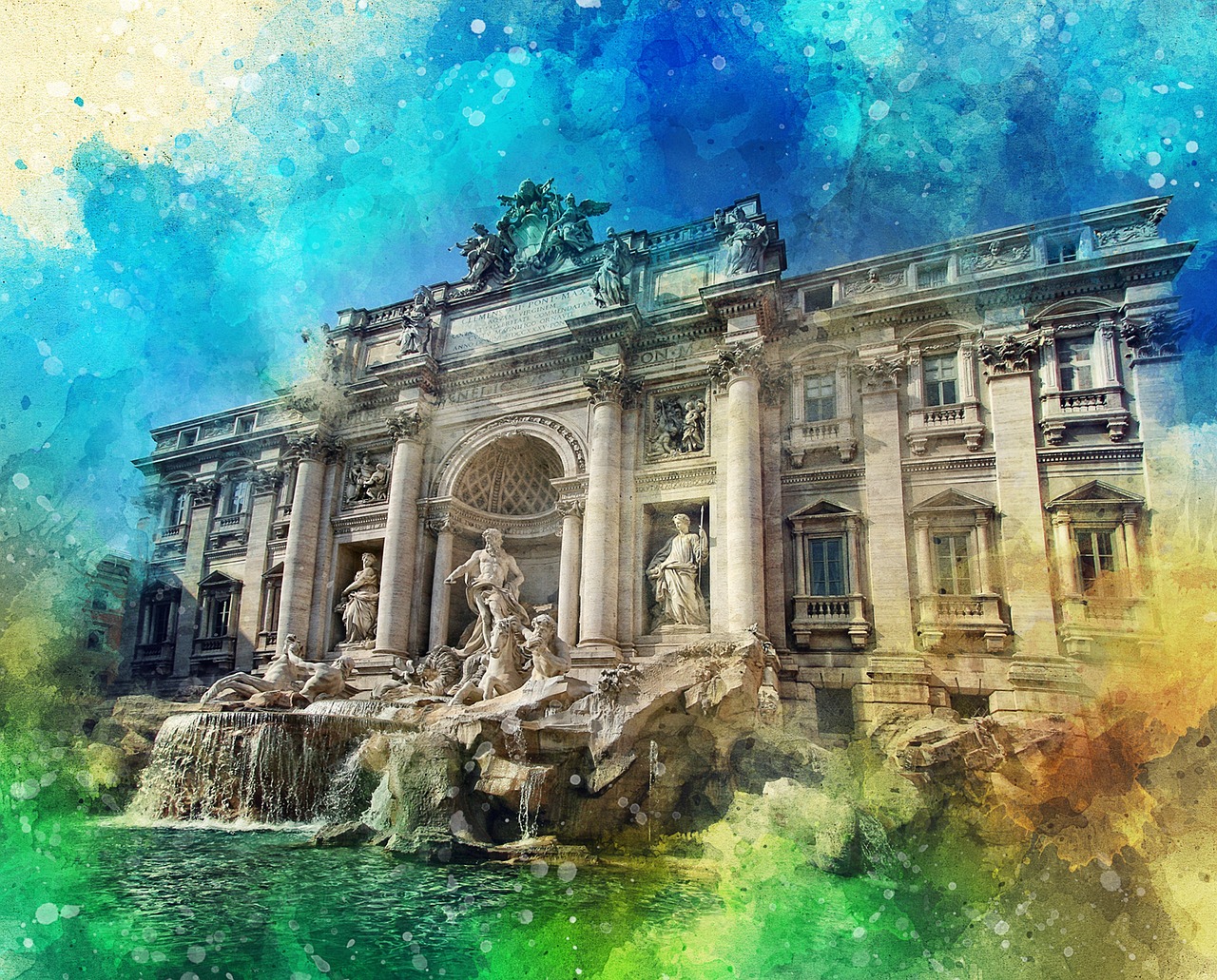
Legacy in Language and Literature
The legacy of ancient Roman religion in language and literature is profound and enduring, shaping the way we communicate and tell stories to this day. The Romans were not only skilled architects and warriors but also adept wordsmiths, weaving their religious beliefs and mythological tales into the fabric of their language and literary works. Latin, the language of the Romans, has left an indelible mark on many modern languages, with numerous words and phrases rooted in its ancient origins.
Moreover, Roman mythology has provided a rich tapestry of characters and narratives that continue to inspire writers, poets, and storytellers across the globe. The epic poems of Virgil, such as the Aeneid, have become timeless classics that explore themes of heroism, destiny, and the divine – resonating with readers for centuries.
Furthermore, the influence of Roman religious concepts can be seen in the moral and ethical dilemmas portrayed in literature, reflecting the values and beliefs of ancient Roman society. Themes of loyalty, honor, betrayal, and justice often stem from the moral codes upheld by Roman gods and goddesses, adding depth and complexity to literary works.
Language and literature serve as vessels through which the legacy of ancient Roman religion is preserved and passed down through generations. The power of words and stories to captivate, educate, and inspire is a testament to the enduring impact of Roman culture on the way we express ourselves and make sense of the world.
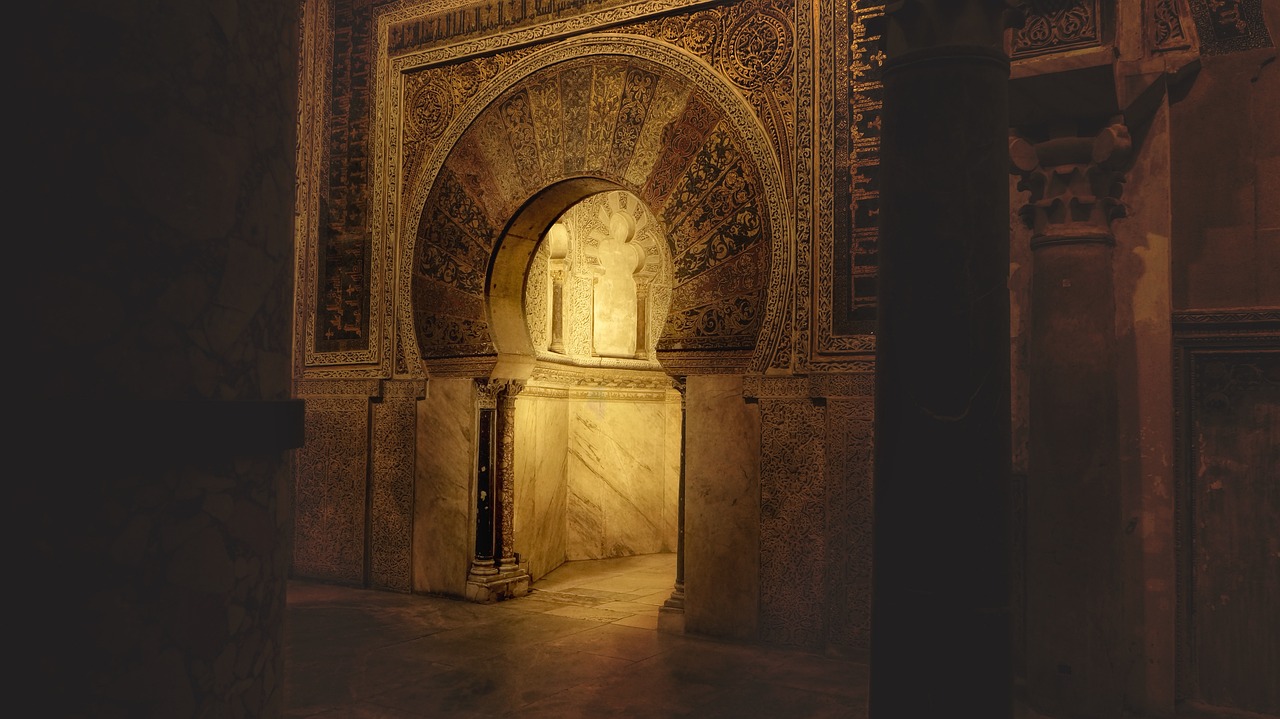
Moral and Ethical Codes
When delving into the realm of moral and ethical codes established by ancient Roman religion, one cannot overlook the profound impact it has had on shaping contemporary ethical frameworks and legal systems. The Romans placed a significant emphasis on virtues such as honor, integrity, and justice, which continue to be foundational principles in modern society.
One of the key pillars of Roman moral and ethical codes was the concept of paterfamilias, the head of the household responsible for upholding moral values and ensuring the well-being of their family. This notion of familial duty and loyalty has transcended centuries and remains a cornerstone of many societal structures today.
Furthermore, Roman ethics were deeply intertwined with the idea of dignitas and gravitas, which emphasized the importance of maintaining one's reputation and acting with seriousness and dignity in all endeavors. These values have left an indelible mark on modern notions of personal integrity and professional conduct.
The Roman legal system, known for its emphasis on equity and fairness, laid the groundwork for many legal principles still in practice today. Concepts such as innocent until proven guilty and due process can be traced back to Roman legal traditions, illustrating the enduring influence of Roman moral and ethical codes.
Moreover, the Roman emphasis on public service and civic duty has shaped contemporary ideas of social responsibility and community engagement. The notion of contributing to the greater good and upholding the welfare of society at large reflects the enduring legacy of Roman ethical values.
In conclusion, the moral and ethical codes established by ancient Roman religion continue to resonate in modern society, serving as a guiding light for ethical behavior, legal principles, and societal norms. By examining the virtues and values upheld by the Romans, we gain a deeper understanding of the foundations upon which our contemporary ethical frameworks are built.
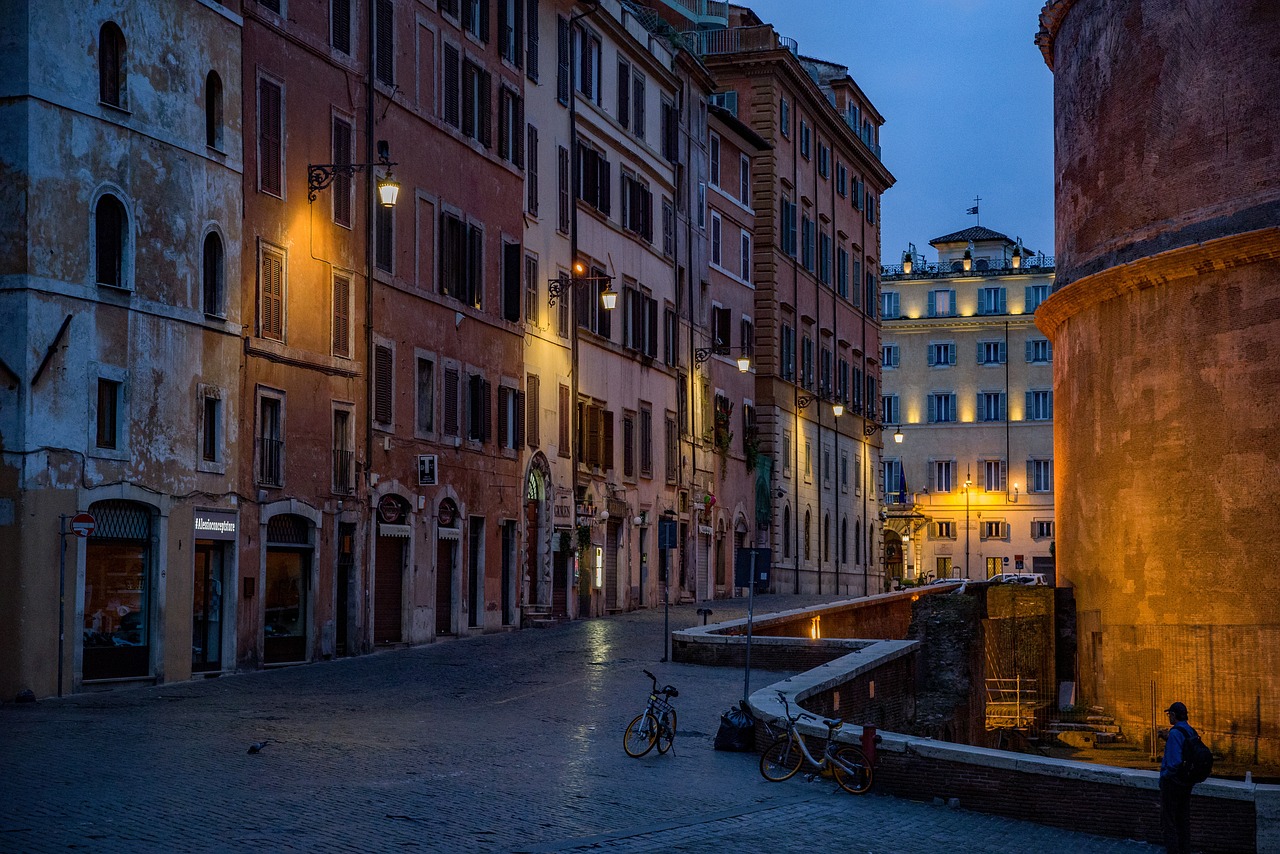
Global Spread and Adaptation
Global Spread and Adaptation of Roman religious practices are a testament to the enduring influence of ancient Roman beliefs on diverse cultures worldwide. The dissemination of Roman religion beyond the borders of the Roman Empire facilitated its integration with local customs and traditions, resulting in a rich tapestry of syncretic practices. As Roman territories expanded, so did the reach of their religious beliefs, blending with indigenous spiritual systems and evolving to accommodate new cultural contexts.
One notable example of Roman religious adaptation is the assimilation of local deities into the Roman pantheon, a practice known as interpretatio Romana. This process allowed for the incorporation of diverse gods and goddesses from conquered territories into the Roman religious framework, fostering a sense of inclusivity and cultural exchange. The amalgamation of deities such as Isis from Egypt and Mithras from Persia into the Roman religious landscape demonstrates the fluidity and adaptability of Roman religious practices.
Furthermore, the spread of Roman religious iconography and architectural styles facilitated the visual dissemination of Roman beliefs across different regions. The construction of temples, shrines, and statues dedicated to Roman deities served as physical markers of Roman presence and influence, leaving a lasting imprint on the artistic and architectural heritage of various civilizations.
As Roman civilization declined, the Christianization of the Roman Empire led to the absorption of many Roman religious customs and symbols into early Christian practices. The adoption of Roman festivals such as Saturnalia and Sol Invictus as Christian holidays, as well as the repurposing of Roman religious sites for Christian worship, exemplifies the enduring legacy of Roman religious traditions in shaping the development of Western religious thought.
In conclusion, the global spread and adaptation of Roman religious practices highlight the resilience and adaptability of ancient Roman beliefs in the face of cultural diversity and change. The fusion of Roman religious elements with local traditions not only enriched the spiritual landscape of various societies but also contributed to the formation of hybrid religious identities that continue to resonate in contemporary religious practices.
Frequently Asked Questions
- What were the main deities worshipped in ancient Roman religion?
Ancient Roman religion was polytheistic, with a pantheon of gods and goddesses. Some of the major deities included Jupiter, Juno, Mars, Venus, and Neptune.
- How did Roman religious festivals influence modern celebrations?
Many modern holidays and festivals have roots in ancient Roman religious practices. For example, Christmas and Easter have connections to Roman winter solstice and spring festivals.
- What impact did Roman religious beliefs have on art and architecture?
Roman religious themes heavily influenced the art and architecture of the time, leading to the creation of magnificent temples, statues, and frescoes that continue to inspire artists and architects today.
- Did Roman moral and ethical codes play a role in shaping modern society?
Absolutely. Roman concepts of justice, honesty, and duty have influenced the development of legal systems and ethical frameworks in many modern societies.
- How did Roman religion spread globally and impact other cultures?
Through conquest and trade, Roman religious practices spread to different parts of the world, blending with local beliefs and customs to create unique hybrid religious traditions.




